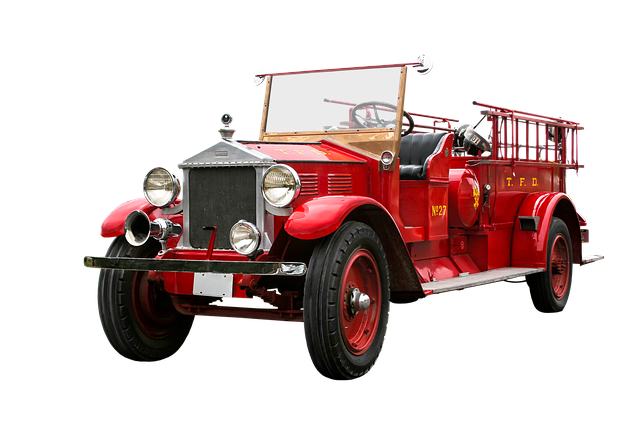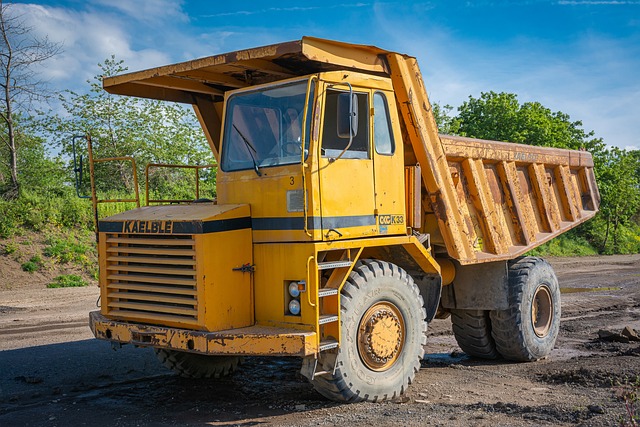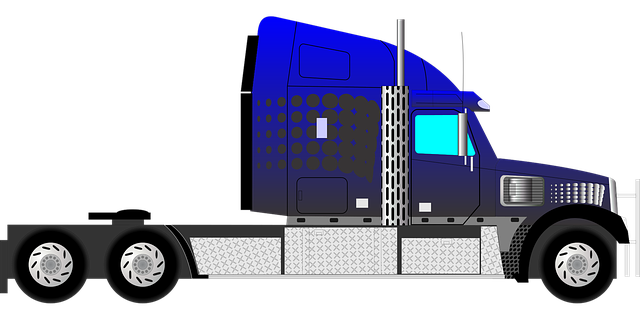Uncovering a truck's accident history is vital for commercial trucking safety. Comprehensive records help fleet managers identify hazards, target safety measures, update training, and select new vehicles. Analyzing past accidents reveals issues with components under constant stress, enhancing fleet safety and reliability. Recent recalls underscore the need for meticulous vehicle history checks, enabling proactive risk mitigation, informed decisions, and a safer work environment. Fleet managers play a key role in managing maintenance and operations to prevent accidents, reduce risk, and maintain efficiency and reputation.
In the high-stakes world of commercial trucking, understanding a vehicle’s history is not merely an option—it’s a safety imperative. Commercial Truck Accident History checks act as a critical shield, exposing previous accidents and potential issues that could impact performance or safety. This is particularly relevant in light of major recalls, such as General Motors’ recent action affecting hundreds of thousands of vehicles. By delving into this history, fleet managers can make data-driven decisions, enhancing vehicle reliability and safeguarding roads. This article explores the crucial role of accident history checks, from uncovering past incidents to mitigating risks and ensuring safe operations.
- Uncovering Truck Accident History: A Key to Safety
- Wear and Tear: Understanding Past Incidents
- Recent Recalls: A Call for Diligence
- The Role of Fleet Managers in Risk Mitigation
- Ensuring Vehicle Reliability Through Checks
- Safeguarding Roads: A Comprehensive Approach
Uncovering Truck Accident History: A Key to Safety

Uncovering a truck’s accident history is a critical step in maintaining safety standards within the commercial trucking industry. Every vehicle, regardless of its age or make, carries a unique narrative of past incidents, which can offer valuable insights into potential hazards and maintenance needs. By accessing comprehensive records, fleet managers gain a clearer understanding of the road conditions that their trucks have encountered. This knowledge allows them to identify recurring issues, such as mechanical failures or driver errors, that could lead to more severe accidents in the future.
Accident history checks serve as an essential tool for identifying vehicles at higher risk and implementing targeted safety measures. For instance, discovering multiple incidents involving rear-end collisions might prompt managers to review driving behavior, update training programs, or even consider retrofitting certain parts to enhance brake performance. Moreover, these historical data can aid in comparing the overall safety record of different truck models, helping companies make informed decisions when selecting new vehicles for their fleet.
Wear and Tear: Understanding Past Incidents

In the commercial trucking industry, wear and tear is an inevitable aspect of vehicle operation. Over time, components that endure constant stress and strain can degrade, leading to potential safety hazards if not addressed promptly. A thorough Commercial Truck Accident History check helps fleet managers identify these issues by revealing previous accidents or incidents. By examining the causes and effects of past events, managers gain valuable insights into the condition of their vehicles, allowing them to proactively address wear and tear-related concerns.
For instance, a history of minor fender benders or low-speed collisions might indicate suspension or steering problems that, if left unaddressed, could escalate into more serious issues. Similarly, recurring accidents involving jackknifing or rolling over can signal problems with brakes, tires, or load distribution systems—all critical components for ensuring the safety of both the vehicle and its cargo. Understanding this historical context empowers fleet managers to make data-driven decisions, enhancing overall fleet safety and reliability.
Recent Recalls: A Call for Diligence

In recent years, several high-profile recalls have underscored the critical need for meticulous vehicle history checks. One notable example is General Motors’ recall of a significant number of diesel vehicles due to a dangerous defect. This event serves as a stark reminder that even seemingly minor issues can have severe consequences when left unaddressed. By identifying and rectifying such problems, fleet managers can significantly reduce the risk of accidents, thereby prioritizing safety and maintaining the integrity of their trucking operations.
The recall highlights the importance of proactive measures in the face of potential hazards. Commercial truck accident history checks are not merely formalities but essential tools for identifying vehicles with underlying issues. Through these checks, fleet operators gain valuable insights into a vehicle’s past, enabling them to make informed decisions about maintenance, upgrades, and replacement, ultimately contributing to a safer working environment on the roads.
The Role of Fleet Managers in Risk Mitigation

In the commercial trucking sector, fleet managers play a pivotal role in mitigating risks associated with vehicle safety and performance. They are responsible for overseeing the maintenance and operation of a fleet, which often comprises dozens or even hundreds of vehicles. A primary task is conducting thorough background checks on each truck’s history, including accident records. This proactive approach enables managers to identify potential hazards before they escalate into costly and dangerous incidents.
By reviewing past accidents, fleet managers can anticipate and address issues such as mechanical failures, safety equipment deficiencies, or driver misconduct. They make critical decisions regarding vehicle replacement, repair, or retraining drivers based on this data. Ultimately, their diligence contributes to creating a safer work environment for drivers, reducing the risk of accidents, and ensuring the overall efficiency and reputation of the trucking company.
Ensuring Vehicle Reliability Through Checks

Ensuring vehicle reliability is paramount in the commercial trucking industry, where safety isn’t just a concern—it’s a non-negotiable. A significant step towards achieving this lies in implementing rigorous checks on a vehicle’s past, especially its accident history. By delving into this history, fleet managers gain valuable insights into potential issues that could impact performance or worse, lead to accidents.
Regular and thorough checks enable them to identify recurring problems, whether it’s mechanical failures, safety defects, or signs of wear and tear. This proactive approach allows for targeted maintenance, preempting major breakdowns and enhancing the overall reliability of the fleet. As seen in recent events like General Motors’ recall, addressing historical issues can prevent devastating accidents and ensure the safety of drivers, cargo, and other road users.
Safeguarding Roads: A Comprehensive Approach

In the broader context of road safety, a thorough understanding of a vehicle’s past is not merely beneficial but crucial. Commercial trucking, given its pivotal role in transporting goods and people, demands an extra layer of vigilance. By delving into a vehicle’s accident history, fleet managers can anticipate potential hazards and take proactive measures to safeguard roads. This comprehensive approach involves identifying wear and tear patterns, underlying mechanical issues, and even driver behavior that might contribute to future accidents.
Recalls like General Motors’ recent action underscore the importance of such checks. By addressing defects early, fleet managers not only protect their assets but also play a vital role in preventing potential crashes. This proactive stance ensures that vehicles on the road are reliable and safe, thereby fostering a culture of responsibility within the trucking industry as a whole.
In the commercial trucking industry, understanding a vehicle’s past is not just helpful—it’s imperative. By thoroughly checking a truck’s accident history, fleet managers can identify potential safety risks and wear and tear, ensuring the reliability and safety of their fleets. Recent recalls like General Motors’ underscore the importance of proactive measures to prevent accidents. Through diligent checks, informed decision-making, and comprehensive risk mitigation strategies, fleet managers play a crucial role in safeguarding roads and preventing future incidents.



